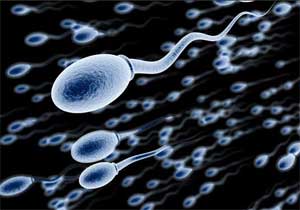- Home
- Editorial
- News
- Practice Guidelines
- Anesthesiology Guidelines
- Cancer Guidelines
- Cardiac Sciences Guidelines
- Critical Care Guidelines
- Dentistry Guidelines
- Dermatology Guidelines
- Diabetes and Endo Guidelines
- Diagnostics Guidelines
- ENT Guidelines
- Featured Practice Guidelines
- Gastroenterology Guidelines
- Geriatrics Guidelines
- Medicine Guidelines
- Nephrology Guidelines
- Neurosciences Guidelines
- Obs and Gynae Guidelines
- Ophthalmology Guidelines
- Orthopaedics Guidelines
- Paediatrics Guidelines
- Psychiatry Guidelines
- Pulmonology Guidelines
- Radiology Guidelines
- Surgery Guidelines
- Urology Guidelines
Father's diet affects sperm quality and health of offspring

Lack of protein in a father's diet affects sperm quality which can have a direct impact on the long-term health of their offspring, according to the findings of a new study published in the journal PNAS. Parental health and diet at the time of conception determine the development and life-long disease risk of their offspring.
While the association between poor maternal diet and offspring health is well established, the underlying mechanisms linking paternal diet with offspring health are poorly defined.
There has been much research showing that sperm from men who are overweight, smoke, drink excessively or who have type 2 diabetes are often of poorer quality than sperm from healthy, fertile men. However, little is known about the impact of such lifestyle factors on the long-term health of a father's offspring. The new study bridges this gap in understanding by using a mouse model to explore the long-term growth and metabolic health of offspring from males fed a poor quality diet.
The researchers developed a mouse paternal low-protein diet (LPD) model to determine its impact on semen quality, maternal uterine physiology, and adult offspring health.
The study found that sperm from LPD-fed male mice displayed global hypomethylation associated with reduced testicular expression of DNA methylation and folate-cycle regulators compared with normal protein diet (NPD) fed male.
Furthermore, females mated with LPD males display blunted preimplantation uterine immunological, cell signaling, and vascular remodeling responses compared to controls. These data indicate paternal diet impacts on offspring health through both sperms genomic (epigenetic) and seminal plasma (maternal uterine environment) mechanisms.
Read Also:Regular consumption of nuts improves sperm Quality-Study
The investigators extended the model to find sperm- and seminal plasma-specific effects on offspring health by combining artificial insemination with the vasectomized male mating of dietary-manipulated males. All offspring derived from LPD sperm and/or seminal plasma became heavier with increased adiposity, glucose intolerance, perturbed hepatic gene expression symptomatic of the nonalcoholic fatty liver disease, and altered gut bacterial profiles. These data provide insight into programming mechanisms linking poor paternal diet with semen quality and offspring health.
"It is important to recognize that sperm contribute more than just half of the genes that make up a child. During natural conception sperm deposited in the female reproductive tract are bathed in seminal plasma which can in itself influence pregnancy outcomes. Our study shows that the composition of seminal plasma can be altered by father's diet and that this can also influence offspring wellbeing," said Kevin Sinclair, Professor of Developmental Biology in the School of Biosciences, who collaborated on this study.
For reference log on to https://doi.org/10.1073/pnas.1806333115

Disclaimer: This site is primarily intended for healthcare professionals. Any content/information on this website does not replace the advice of medical and/or health professionals and should not be construed as medical/diagnostic advice/endorsement or prescription. Use of this site is subject to our terms of use, privacy policy, advertisement policy. © 2020 Minerva Medical Treatment Pvt Ltd